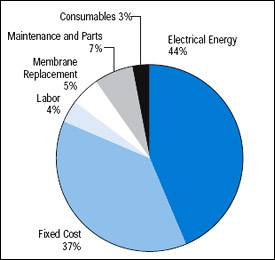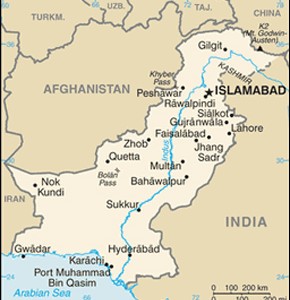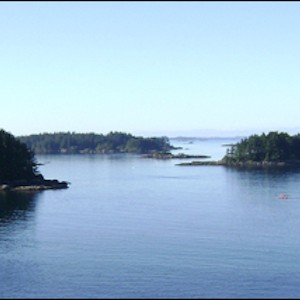Great Lakes States Sue Federal Government Over Asian Carp Threat
The recent discovery of a live carp close to Lake Michigan may bolster the states’ case, legal expert says.

By Steve Kellman
Circle of Blue
The federal government faces a fresh round of legal action regarding the potential threat Asian carp pose to the Great Lakes.
Five states—Michigan, Minnesota, Ohio, Pennsylvania and Wisconsin—filed suit in a U.S. District Court Monday, to force the government to take more drastic steps to block the invasive aquatic species from colonizing the lakes and threatening their $7 billion sportfishing industry.
Led by Michigan Attorney General Mike Cox, who is also a Republican candidate for state governor, the coalition sued the U.S. Army Corps of Engineers and the Metropolitan Water Reclamation District Of Greater Chicago. They are seeking a preliminary injunction that would temporarily close the locks connecting the carp-infested Illinois River to Lake Michigan.
“President Obama and the Army Corps of Engineers have failed to fight Asian carp aggressively,” Cox said in a statement. “Asian carp will kill jobs and ruin our way of life. We cannot afford more bureaucratic delays—emergency action must be taken to protect the Great Lakes.”
In an email to subscribers of his StopAsianCarp.com website, Cox explained the urgency behind the lawsuit, and laid out the complaints against the federal response to date.
“Our worst fears came true after Illinois authorities announced on June 22 that a Bighead Asian carp was found in Lake Calumet, within striking distance of Lake Michigan,” Cox wrote. “And when you find one carp, the experts say there are more nearby.
“Stunningly, despite the mounting evidence, the Army Corps and Chicago authorities refused to temporarily close the O’Brien and Chicago locks. They’ve failed the apply fish poison in every location that tested positive for Asian carp eDNA. They’ve failed to comprehensively address all pathways linking Lake Michigan with carp-infested Illinois waterways. And they have failed to sufficiently accelerate the permanent separation of the Great Lakes Basin from the carp-infested Chicago Area Waterway System.”
The lawsuit seeks immediate action to block the carp: the installation of nets and the use of mesh screens on sluice gates, the use of fish poison in areas where Asian carp DNA has been detected, and the temporary closures of the O’Brien and Chicago locks.
In April, the U.S. Supreme Court turned down a lawsuit filed by Cox that sought to use a decades-old lawsuit against Illinois over Chicago’s diversion of Lake Michigan water to force action to block the carp.
Cox spokesperson Joy Yearout told Circle of Blue that the Supreme Court’s rejection of that case should not impact the new lawsuit.
“The benefit we have going forward is that although the Supreme Court declined to hear our case, they did not rule on the merits of the case,” Yearout said. “The Supreme Court would have been quicker … [but] this is the more traditional route.”
Nick Schroeck, executive director of the Great Lakes Environmental Law Center, said the capture of an Asian carp beyond a key electric barrier last month may bolster the state’s case that the fish pose an imminent threat to the lakes.
“That might persuade the judge in this case to rule more favorably [for the states],” Schroeck said. “It’s easier to show the threat of the carp when you have an actual carp.”
The Supreme Court case relied on findings of environmental DNA in the waters beyond the barrier, which suggested that fish had been present but did not offer conclusive proof.
The court is set review the states’ preliminary injunction request next week. But there’s a “strong possibility” that the federal government will request an extension that could postpone the hearing for several weeks, Yearout said.
Steve Kellman is a Circle of Blue writer and reporter. Reach him at circleofblue.org/contact.











All biological life in nature will move to areas where it is easier to survive and before lands was claimed; the same did humans, while some still do. The first question why Asian carps are moving in has a simple answer; they like the conditions as there is plenty of algae for them to eat. The second question should be why there is so much algae and here the answer is that the nitrogenous (urine and protein) waste in sewage is not required to be treated, while this waste besides exerting an oxygen demand (just like fecal waste) also is a fertilizer for algae. The third question should be why is this waste ignored? Here the answer is that when EPA implemented the Clean Water Act it used an essential water pollution test incorrect and as one consequence ignored this waste, besides many others problems (www.petermaier.net). Finally the last question is; why nobody seems to care?
Is this really too difficult to understand?